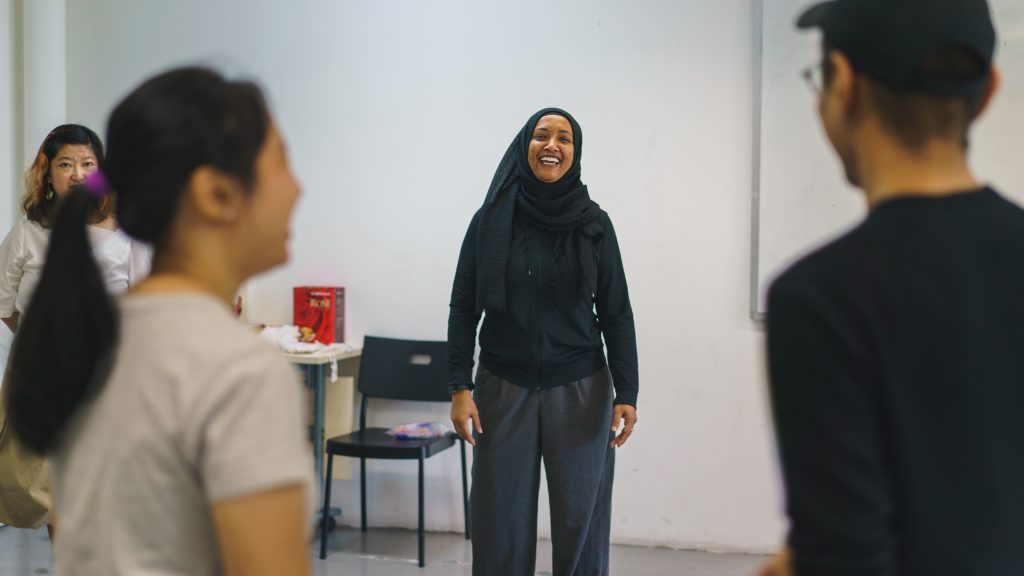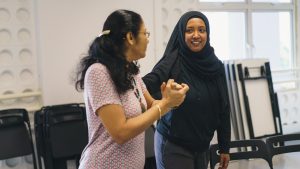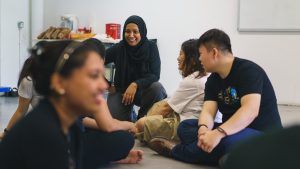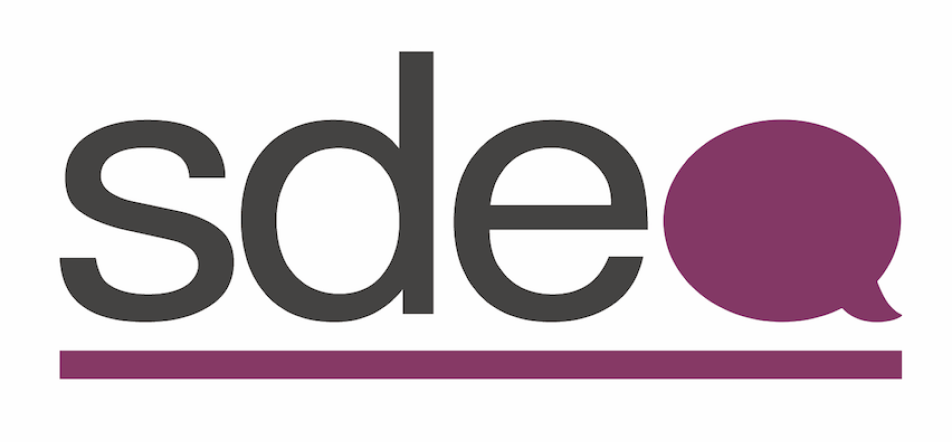Reflecting on SDEA Drama Pedagogy: Molizah Bte Mohd Mohter
by SDEA

Molizah Bte Mohd Mohter (or Moli) is a recipient of SDEA's Tina Sergeant Professional Development Initiative and recent graduate of our Essential Teaching and Learning Approaches course, which runs once a year. She reflects on her journey.
Education Is Important During the interview for Tina Sergeant Professional Development Initiative, I was asked if I thought education is important, having mentioned that 'paper' (qualifications) was not important. I answered that education is important. I have always believed that. One should always upgrade oneself to stay relevant. However, the need to have paper to prove my worth, was not. I had a discussion with a friend after that, lamenting how I should have gotten my diploma when I was younger. I complained about some of my peers who were teaching or conducting workshops without being equipped with enough knowledge or experience to conduct lessons, or those who had not upgraded themselves, stuck in the 1990s style of conducting workshops… The reason I signed up for the course was to upgrade myself. I wanted to be sure that I am teaching or giving the right lesson or workshop. I wanted to be sure that I was in line with the needs of the arts education landscape in Singapore.
Humble Starts
I wasn’t trained in an arts school and I counted myself lucky in getting jobs and learning straight from professionals.
 The first time I taught, was as an assistant to Aidli Mosbit. She was teaching Speech and Drama at Raffles Girls’ Primary School. That was in the early 2000s and Aidli decided to let me take over her class.
These were primary 3 students.
On my first day alone with the students, they were running around, shouting and screaming at each other. It was a total nightmare to manage the class. But week after week, I improved in class management and got the lessons going. Soon after we managed to stage a performance.
Thus, I began to fall in love with teaching and conducting workshops.
However, I always felt that something is missing, that I wasn’t fully equipped. I thought "Maybe, it was just my self-confidence."
The first time I taught, was as an assistant to Aidli Mosbit. She was teaching Speech and Drama at Raffles Girls’ Primary School. That was in the early 2000s and Aidli decided to let me take over her class.
These were primary 3 students.
On my first day alone with the students, they were running around, shouting and screaming at each other. It was a total nightmare to manage the class. But week after week, I improved in class management and got the lessons going. Soon after we managed to stage a performance.
Thus, I began to fall in love with teaching and conducting workshops.
However, I always felt that something is missing, that I wasn’t fully equipped. I thought "Maybe, it was just my self-confidence."
Asking the right questions On my third week going through this course, an incident happened in my class which badly affected me. My brain went into overthinking. Was it my fault? Did I do my best to make sure that didn’t happen? Was my classroom management bad? Did I trigger the student to over react? Was I tired before the class? If I have not gone through SDEA Drama Pedagogy - Essential Teaching and Learning Approaches, I would have quit that job. But instead of quitting, and self criticising, I started asking the right questions. It took me more than 10 days to ‘forgive’ myself. I wasn’t to be blamed. The institution that I was teaching is not a ‘normal’ institution. They are a set of special girls. They need structured guidance (words of Elvira Holmberg), and I am a drama teacher, not Mother Theresa. I am not to be blamed for not being equipped to handle emotionally and mentally unstable students. The institution that employed me knows my capabilities and my limitations.
If I have not gone through SDEA Drama Pedagogy - Essential Teaching and Learning Approaches, I would have quit that job. I asked that the 2 students to be removed from my class. I have to admit that I still do feel a tiny weight of guilt because I know how that 2 girls do enjoy their drama lessons. But, I also know that I need to feel safe in order to deliver.
From The Classroom To The Classroom

During our micro-teaching assessment, I wanted to try something that I had never tried in any of my classes. I wanted to experiment with an idea that I had in my mind. I felt that it was a safe environment to see how it would turn out. However, I was still affected by the incident mentioned earlier, and I did not think I did very well during the assessment. My energy was low and it only picked up during the main lesson.
The week after the assessment, I used the same lesson plan I had prepared in my real class. I changed the warm up activity slightly but kept the main lesson as close to the plan as possible. My students were told to write a story that ended with a conflict before we discussed possible ways to solve them. They took turns to solve the problems by stepping into the story and becoming the character. There was teamwork, debates, and discussion among the students. In reflections written by the students at the end of class, it was clear that they did understand the objective of the lesson – to learn to tell a story clearly with a beginning, middle, and end, and to be able to solve problems or conflicts through discussion.
Always Learning This course has given me the opportunity to understand my teaching method better and what are my strengths and weaknesses, and what I need to do to improve myself. I need to widen my vocabulary. I need to learn how to write my objectives clearly. I need to make sure that my lessons are scaffolded properly to reach my objectives. I hope that I will continue to grow as an educator and there will be more opportunities and platforms for me to continue learning.



